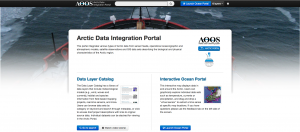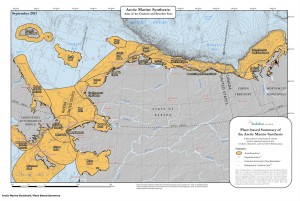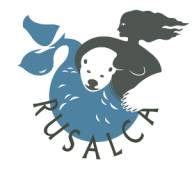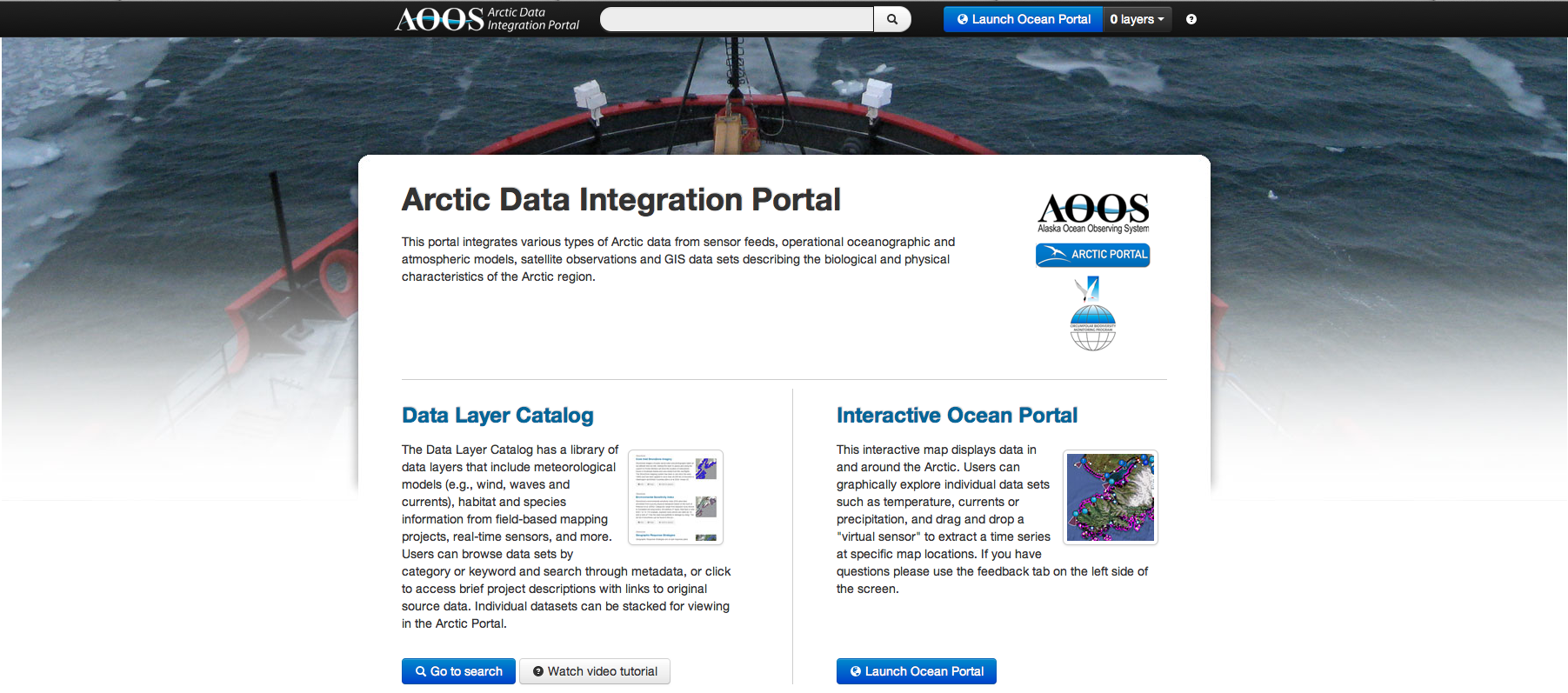Publicly released in late January, the AOOS Arctic Portal is a regional data integration and mapping application for research, planning, management and decision support in the US Arctic. This week, data from two large-scale projects were added:
Arctic Marine Synthesis Atlas – In early 2010, Audubon Alaska, in cooperation with Oceana, completed the Arctic Marine Synthesis: Atlas of the Chukchi and Beaufort Seas. The project area includes the southern Beaufort, southern Chukchi, and northern Bering seas. The data set includes 145 layers ranging from habitat area and oceanography to human use, and provides a holistic look at the Arctic Ocean ecosystem.
Russian-American Long-term Census of the Arctic – Known as RUSALCA, this ongoing bilateral scientific sampling program in the Bering and Chukchi Seas funded by NOAA and NSF has produced 8 years of data. The census of biological, geological, chemical and physical activity provides a robust baseline to support scientific inquiry, as this region acts as the only Pacific gateway into the Arctic and is critical for the flux of heat between the Arctic and the rest of the world.
Visualized and analyzed together, this information will be invaluable to researchers, communities and government agencies understanding and monitoring changes in climate, weather, and physical and biological oceanic processes. Immediate benefits, such as validating and improving forecast models in the region, can be expected as well.
AOOS Opens New Way to Publish Data
Last year, AOOS began working with scientists to provide data management support through the AOOS Research Workspace, a web-based project level data management system. This limited-access, web-based Workspace enables multiple PIs to post, share and search for each other’s data, and rapidly author metadata. Since its inception, project investigators have offered feedback and input, helping to shape a suite of research tools which are now available to all users in the AOOS Research Workspace.
This week, AOOS took the next step by publishing RUSALCA data from the privately accessed Research Workspace to the public facing Arctic Portal. The AOOS team is now developing an automated process to give researchers the option of automatically publishing data sets and metadata profiles both to the AOOS Arctic Portal and to the National Ocean Data Center archives. AOOS looks forward to assisting other research groups to make their data publicly available.
For additional questions or to learn more about enrolling in the AOOS Research Workspace contact info@aoos.org.




